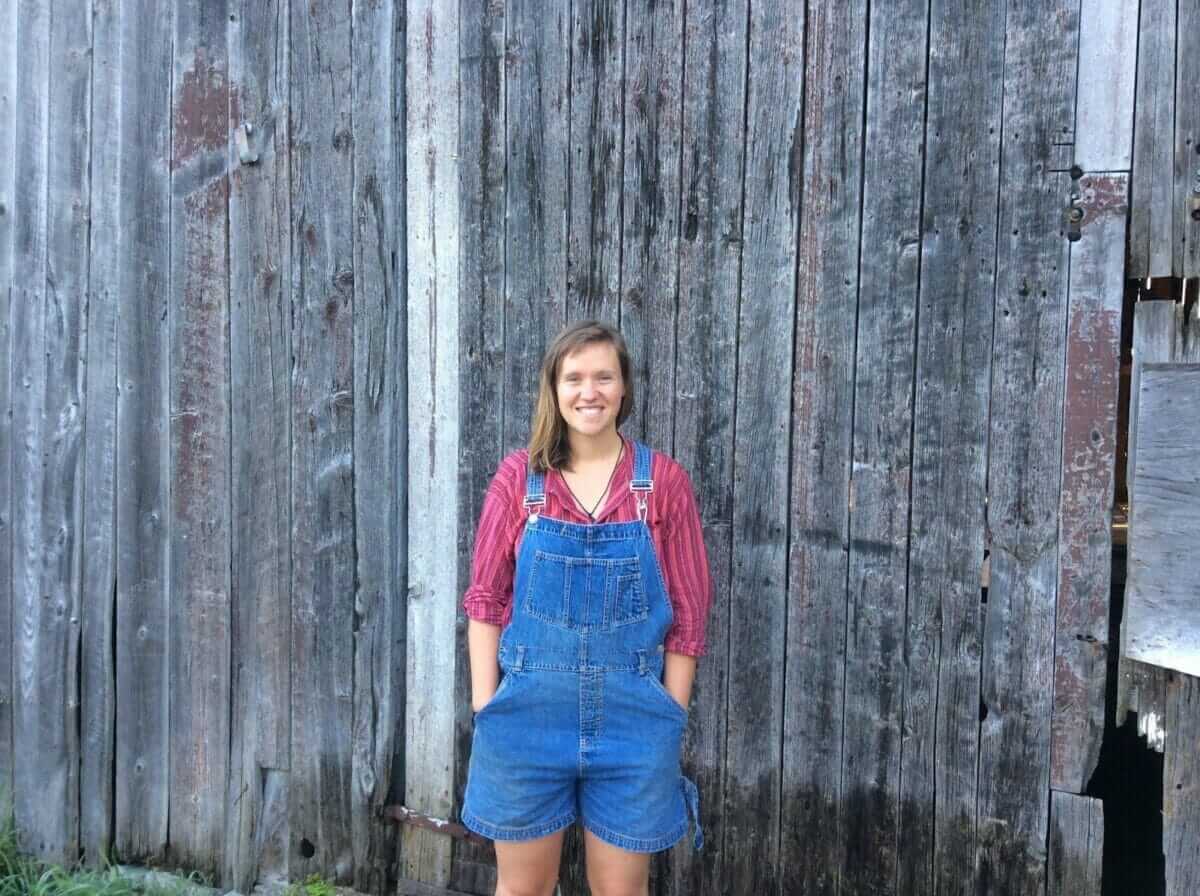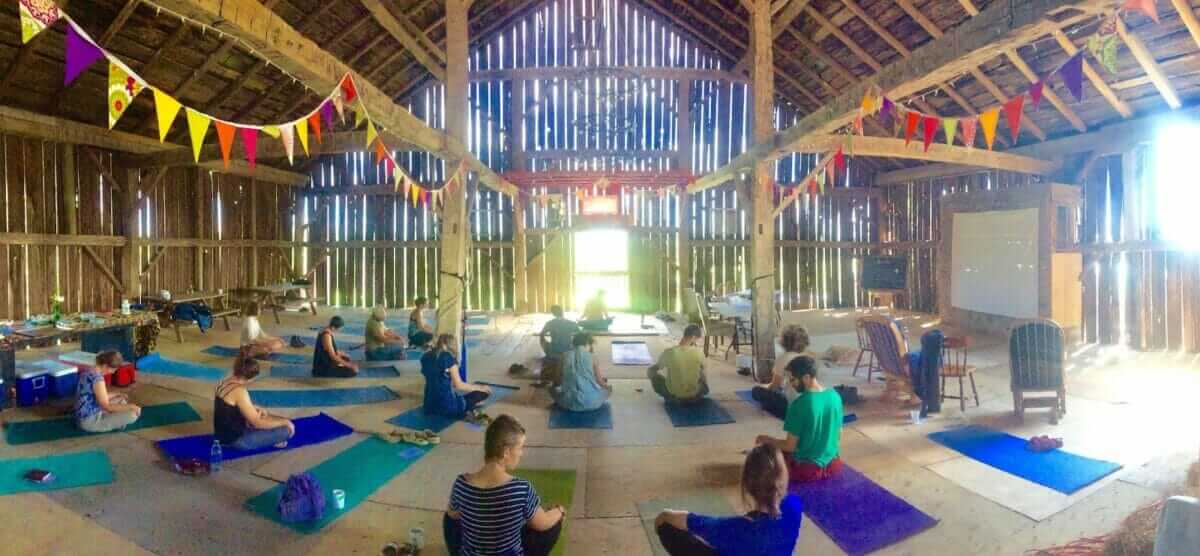Meet the Modern Farmer Working to Make Farmer Wellness Mainstream
Bethany Klapwyk aims to shift producers’ attitudes around their own health.
Meet the Modern Farmer Working to Make Farmer Wellness Mainstream
Bethany Klapwyk aims to shift producers’ attitudes around their own health.

Bethany Klapwyk has used Zocalo Community Farm as a vehicle for promoting holistic health in agriculture.courtesy of Bethany Klapwyk.
Bethany Klapwyk’s adolescent years were atypical of an average teenager. Five months after being prescribed a retinoid acne medication, she recalls falling into a traumatic spell of health challenges.
“My body didn’t feel like mine anymore and I just felt like I wanted to die,” she says. “I could not digest my food. My immune system felt like it was non-existent: I was constantly making prolonged hospital visits to deal with things like parasites and tonsillitis.”
It’s been more than a decade since those issues first arose. But Klapwyk, who began volunteering and working on a number of farms in North America several years after, says agriculture provided her with the environment she needed to start healing. Integrating wellness and methods of somatic therapy—a form of therapy that connects the body and the mind through various practices, often involving movement—have also played a role in her transformation. It explains why she has sought to use her own farm, Zocalo Community Farm, located an hour west of Toronto, as a model and resource to help fellow agrarians think about their health holistically.
“There aren’t enough support services tailored toward farmers by farmers, and it makes sense because farmers don’t have the capacity to…they’re running a farm,” she says. “I have felt called to do this work and to keep farmer wellness on the agenda. It really breaks my heart when people haven’t been exposed to the idea of taking care of their bodies and how they’ve just continued to push themselves beyond their limit.”
Research has pointed to the need for greater prioritization of farmer wellness. Reports of farmers experiencing climate grief have surfaced, while recent scientific studies have shown farmers exposed to extreme weather events are vulnerable to mental health impacts such as depression, anxiety and prolonged emotional distress. The ongoing COVID-19 pandemic has also contributed to the decline of farmer mental health and well-being around the world.
Armed with a number of course credentials in somatics, trauma resolution, breath work and yoga, Klapwyk offers a 10-week wellness program that explores subjects such as body awareness, manual labor, emotional wellness, sexuality, manifestation and community building within the farming world. All of her programming is informed by methods and schools of thought that Klapwyk says have transformed her own health and well-being. Ultimately, it has resulted in her being able to operate her farm more efficiently. She seeks to do the same for others in the farming community.

For Klapwyk, her personal practice involves regularly checking in with her body and how she is feeling. This plays a factor in determining how she can tweak her day or workload to accommodate her needs. Sometimes, if she is spinning in her thoughts, she will seek out formal and informal support to talk it through. She also often integrates a type of movement such as dance or yoga into her day so negative or excess energy can leave her body. In a labor-intensive job such as farming, she believes in the power of somatic work and movement.
“This is about going beyond the nuts and bolts, the hard skills of farming,” she says. “Mental illness, trauma or stress will eventually manifest itself into physical pain. Honoring a body-mind connection is key to prevention. You cannot exclude the body from therapy or if you want to improve your life.”
Since 2016, her farm has also been a location for a number of summer and fall wellness retreats. During these events, farmers are able to connect and work with various professionals such as acupuncturists, naturopaths, massage therapists, yoga and tai chi coaches at a reduced rate. The intent of these events, Klapwyk says, is to give farmers the extra push to access some resources they might not normally have the time or money on which to spend. In her mind, farmers need a middle-man to bridge the gap, as she acknowledges a lot of wellness professionals aren’t connected to agriculture and don’t understand the farmer lifestyle and the types of stressors associated with it.
It’s something Klapwyk intends to build upon. In the future, she hopes to acquire a certification as a registered somatic therapist while exploring other courses to add to her credentials. She says she would also like to open up a space that farmers can visit beyond once a season. She envisions a location where farmers can unwind, be pampered and access any holistic health support they need. If this dream becomes a reality, Klapwyk says, she imagines it will translate into more efficient, resilient farms and, in turn, stronger food systems.
Follow us

This work is licensed under a Creative Commons Attribution-NoDerivatives 4.0 International License.
Want to republish a Modern Farmer story?
We are happy for Modern Farmer stories to be shared, and encourage you to republish our articles for your audience. When doing so, we ask that you follow these guidelines:
Please credit us and our writers
For the author byline, please use “Author Name, Modern Farmer.” At the top of our stories, if on the web, please include this text and link: “This story was originally published by Modern Farmer.”
Please make sure to include a link back to either our home page or the article URL.
At the bottom of the story, please include the following text:
“Modern Farmer is a nonprofit initiative dedicated to raising awareness and catalyzing action at the intersection of food, agriculture, and society. Read more at <link>Modern Farmer</link>.”
Use our widget
We’d like to be able to track our stories, so we ask that if you republish our content, you do so using our widget (located on the left hand side of the article). The HTML code has a built-in tracker that tells us the data and domain where the story was published, as well as view counts.
Check the image requirements
It’s your responsibility to confirm you're licensed to republish images in our articles. Some images, such as those from commercial providers, don't allow their images to be republished without permission or payment. Copyright terms are generally listed in the image caption and attribution. You are welcome to omit our images or substitute with your own. Charts and interactive graphics follow the same rules.
Don’t change too much. Or, ask us first.
Articles must be republished in their entirety. It’s okay to change references to time (“today” to “yesterday”) or location (“Iowa City, IA” to “here”). But please keep everything else the same.
If you feel strongly that a more material edit needs to be made, get in touch with us at [email protected]. We’re happy to discuss it with the original author, but we must have prior approval for changes before publication.
Special cases
Extracts. You may run the first few lines or paragraphs of the article and then say: “Read the full article at Modern Farmer” with a link back to the original article.
Quotes. You may quote authors provided you include a link back to the article URL.
Translations. These require writer approval. To inquire about translation of a Modern Farmer article, contact us at [email protected]
Signed consent / copyright release forms. These are not required, provided you are following these guidelines.
Print. Articles can be republished in print under these same rules, with the exception that you do not need to include the links.
Tag us
When sharing the story on social media, please tag us using the following: - Twitter (@ModFarm) - Facebook (@ModernFarmerMedia) - Instagram (@modfarm)
Use our content respectfully
Modern Farmer is a nonprofit and as such we share our content for free and in good faith in order to reach new audiences. Respectfully,
No selling ads against our stories. It’s okay to put our stories on pages with ads.
Don’t republish our material wholesale, or automatically; you need to select stories to be republished individually.
You have no rights to sell, license, syndicate, or otherwise represent yourself as the authorized owner of our material to any third parties. This means that you cannot actively publish or submit our work for syndication to third party platforms or apps like Apple News or Google News. We understand that publishers cannot fully control when certain third parties automatically summarize or crawl content from publishers’ own sites.
Keep in touch
We want to hear from you if you love Modern Farmer content, have a collaboration idea, or anything else to share. As a nonprofit outlet, we work in service of our community and are always open to comments, feedback, and ideas. Contact us at [email protected].by Lindsay Campbell, Modern Farmer
January 23, 2022
Modern Farmer Weekly
Solutions Hub
Innovations, ideas and inspiration. Actionable solutions for a resilient food system.
ExploreExplore other topics
Share With Us
We want to hear from Modern Farmer readers who have thoughtful commentary, actionable solutions, or helpful ideas to share.
SubmitNecessary cookies are absolutely essential for the website to function properly. This category only includes cookies that ensures basic functionalities and security features of the website. These cookies do not store any personal information.
Any cookies that may not be particularly necessary for the website to function and are used specifically to collect user personal data via analytics, ads, other embedded contents are termed as non-necessary cookies.
I am thrilled to see this article! I have been working in the Midwest as a farmer and massage therapist advocating in my circles for body awareness and body care for farmers my farmers. It often feels like an uphill battle, met with much resistance from the “old guard” but for farming to be sustainable we MUST consider the center of all operations – US! BRAVO to you Bethany, I would love to connect. It is so refreshing to see all that you’re doing.
Great insight and eye opening!!
Full bs